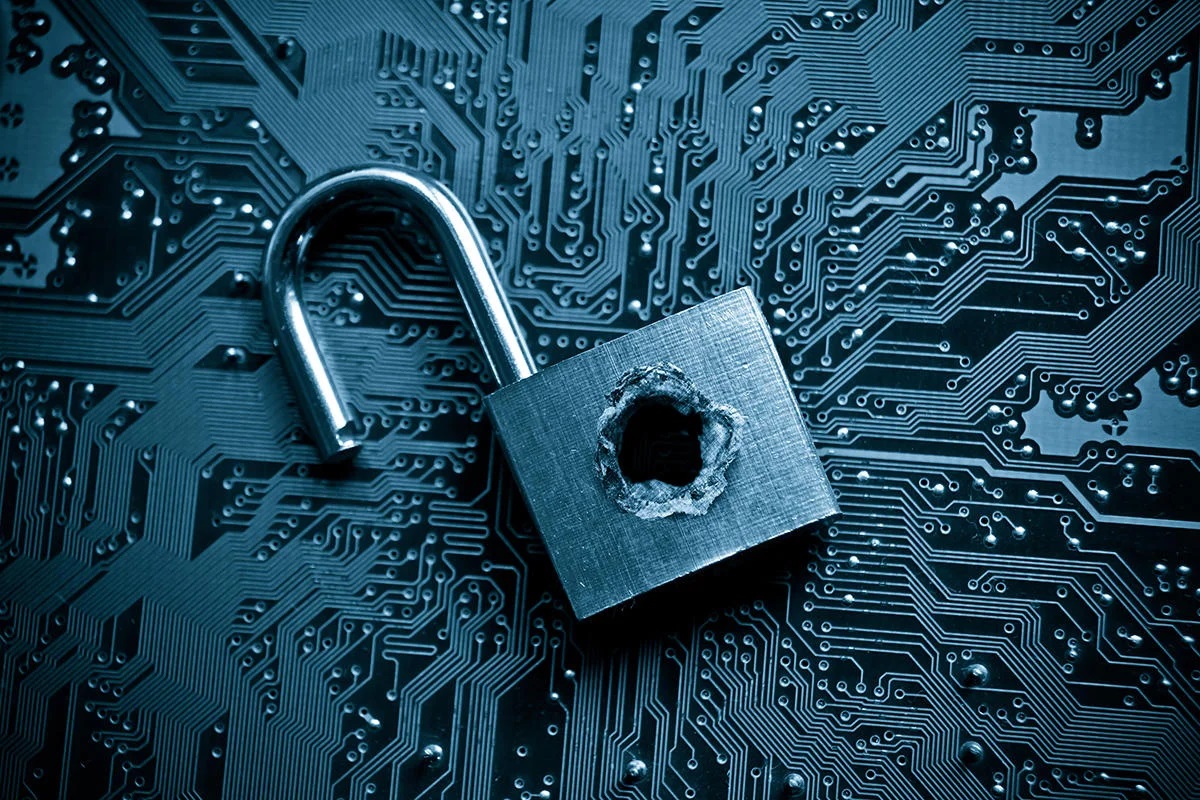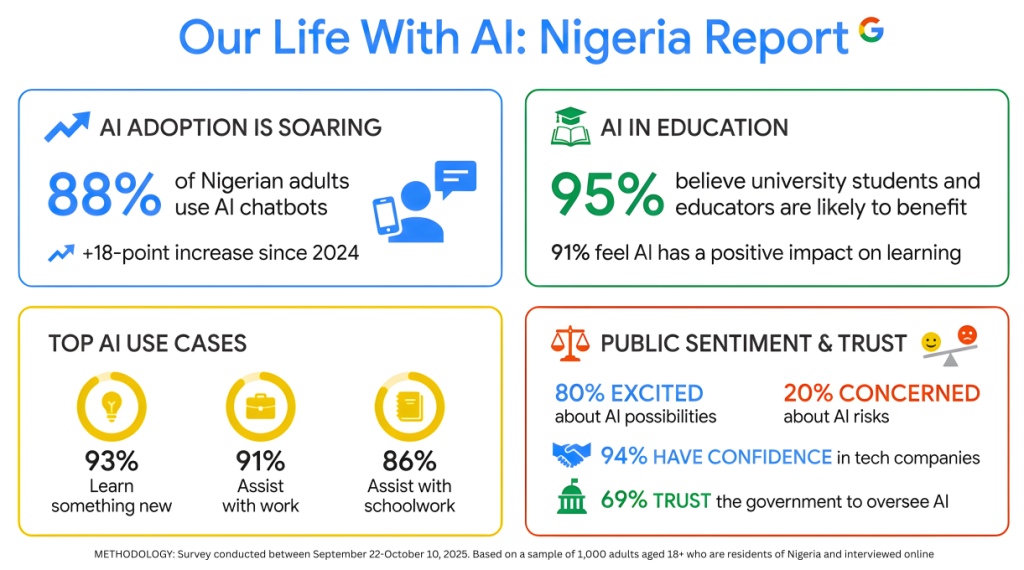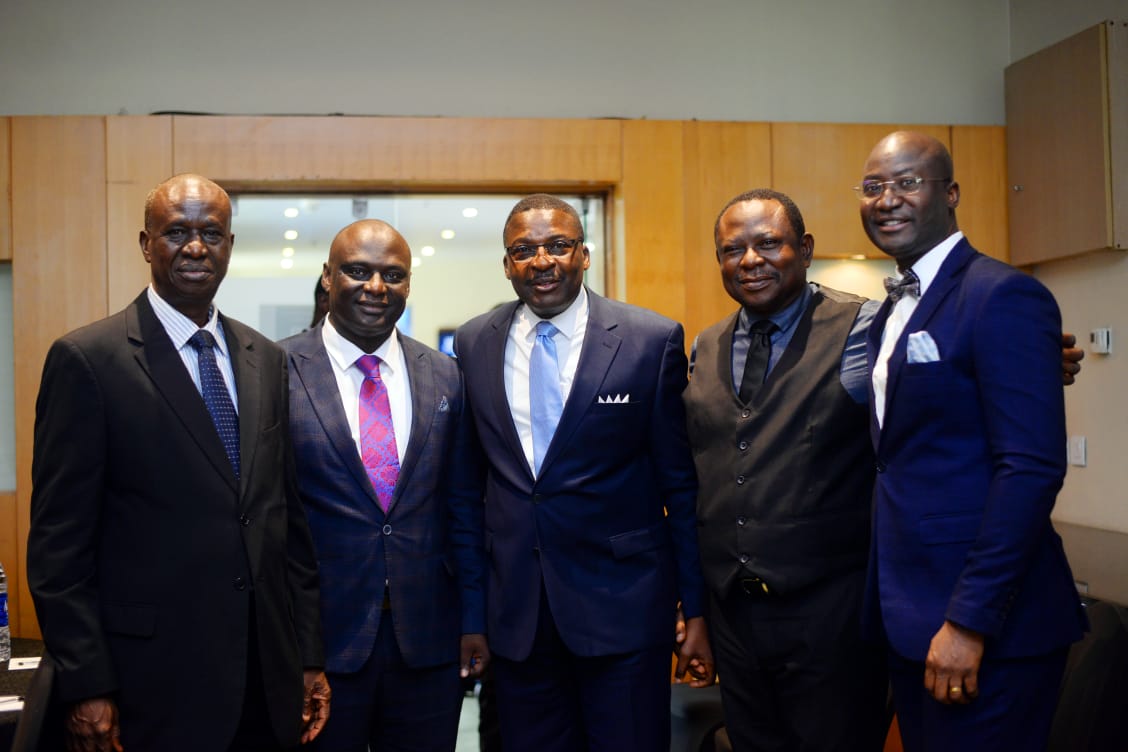Technology
Human Error Accounts for 95% of Data Breaches—Odumuboni

By Sodeinde Temidayo David
The Senior Manager, Cyber Risk Services, Deloitte, Ms Funmilola Odumuboni, has said human error was the primary cause of cybersecurity breaches.
The cyber expert, who was a guest at the 2021 annual conference organised by the Central Securities Clearing System (CSCS) Plc, disclosed that human error accounts for 95 per cent of all data breaches.
Ms Odunmoboni, who said the major principles of cyber-security were confidentiality, integrity and availability, stressed that information meant to be kept secure was indeed secure and kept out of the public domain, while the information at hand was correct and the systems were available to use when one wants to use them.
“Cyber-attack occurs every 39 seconds and cybercrimes increased by nearly 300 per cent following the COVID-19 outbreak.
“Also, human error is the primary cause of cybersecurity breaches, accounting for 95 per cent of all data breaches; 86 per cent of breaches were financially motivated and 10 per cent were motivated by espionage and 36 per cent of breaches involved phishing, 11 per cent more than last year,” she said.
Speaking from the financial markets and investor protection perspectives, the Head of Start-Up Operations at CSCS, Mr Folagbade Adeyemi, stated that the Nigerian market has not been exempted, as fraudsters continue to attempt exploitation of probable vulnerabilities to cause significant investor loss.
According to him, in order to prevent fraudsters from exploiting systemic gaps by assuming an individual identity, investors should take ownership of their identity and increase the effort level for identity theft by carrying out account updates such as contact information, strengthening access controls and periodically reviewing their accounts to ensure safety.
The Chief Executive Officer (CEO) of CSCS Plc, Mr Haruna Jalo-Waziri, in his presentation, stated that the conference, the third in the series, was timely given the increasing global incidence of cyber-attacks, especially as network compromise arising from remote connections associated with work-from-home presents new forms of cyber security exposures.
Mr Jalo-Waziri added that the prolonged COVID-19 pandemic has increased digitization and adoption of new technologies, even though, still presents new risks to cyber security.
According to him, cyber security is not the responsibility of the IT officers, it is rather a collective responsibility of everyone connected to CSCS the system, including customers, who should have education on best practices so as to prevent them from being the weakest link in the systems.
The event themed Cyber Security was put together to raise awareness on cybercrime in the country and find ways to tackle it.
It was attended by CSCS joint leading industry professionals in information technology and cyber security, including various participants from various sectors of the economy.
This year’s meeting discussed innovative ways of enhancing the security architecture of firms, with emphasis on the role of different stakeholders, especially employees and customers in protecting the integrity of information technology networks and systems.
Technology
AI Legal Tech Firm Ivo Gets $55m for Contract Intelligence

By Dipo Olowookere
The sum of $55 million has been injected into an Artificial Intelligence (AI)-powered contract intelligence platform, Ivo, to support product development and scaling as the company deepens its reach across the hundreds of organizations that already rely on its product, including Uber, Shopify, Atlassian, Reddit, and Canva.
The Series B funding round comes after a year of substantial growth in product performance, customer adoption, and market traction to accelerate its mission of making contract intelligence available to every business.
Since its last funding round, Ivo has grown annual recurring revenue by 500 per cent, increased total customers by 134 per cent, and expanded adoption within the Fortune 500 by 250 per cent.
Business Post gathered that the latest funding support came from Blackbird, Costanoa Ventures, Uncork Capital, Fika Ventures, GD1 and Icehouse Ventures.
Ivo is purpose-built for in-house teams that need both reviews with surgical accuracy as well as visibility into their complete contract library.
The company’s AI-powered contract review solution, Ivo Review, allows users to complete reviews in a fraction of the time; customers report saving up to 75 per cent of the time that manual review would demand.
The product standardizes a company’s positions and precedents using playbooks built and implemented by lawyers. This means that every contract is reviewed accurately, consistently, and efficiently, critical for large and globally distributed teams.
“Our goal has always been to make interacting with contracts fast, accurate, and enjoyable. Every key relationship in a business is defined by an agreement, yet most organizations struggle to extract the insights inside them.
“Our focus is to give in-house teams a trustworthy solution that helps them work faster and gives them visibility into their contracts that was previously impossible,” the chief executive and co-founder of Ivo, Min-Kyu Jung, stated.
Also commenting, a Principal at Blackbird, Mr James Palmer, said, “In-house legal teams demand products that are deeply accurate and aligned to how they work. The most sophisticated teams are incredibly selective about the tools they trust.
“Ivo’s traction with some of the world’s best companies shows it consistently exceeds that bar. With exceptional product execution and an uncompromising quality bar, we believe Ivo is defining and leading the category.”
The Senior Manager for Contract Operations at Uber, Ms Kate Gardner, said, “Uber selected Ivo because it was intuitive to use, demonstrated a high level of accuracy, could work in multiple languages, and met its confidentiality requirements. Furthermore, the Ivo team was highly responsive to Uber’s needs.”
Technology
Nigeria Leads in AI for Learning, Entrepreneurship—Google

By Modupe Gbadeyanka
A new report released by global tech giant, Google, in collaboration with Ipsos, has revealed that Nigeria is writing the playbook on Artificial Intelligence (AI) as it leads in AI for learning and entrepreneurship.
In the study titled Our Life with AI: Helpfulness in the hands of more people, it was shown that Nigerians are using AI tools for everything from education to entrepreneurship at a remarkable rate, showing immense optimism for the technology’s future.
It was disclosed that about 88 per cent of Nigerian adults have used an AI chatbot, a huge 18-point jump from 2024, placing the West African country well ahead of the global average of 62 per cent.
It was also found out that while the top use for AI globally has shifted to learning, Nigerians are taking it a step further, using AI as a powerful tool for personal and professional development.
A staggering 93 per cent of Nigerians use AI to learn or understand complex topics, compared to 74 per cent globally, with 91 per cent using the tool to assist them with their work.
In addition, the research observed that 80 per cent of Nigerians are using AI to explore a new business or career change—nearly double the global average of 42 per cent.
Nigerians have overwhelmingly positive feelings about AI’s role in the classroom and beyond, seeing it as a game-changer for education, with 91 per cent feeling AI is having a positive impact on how we learn and access information versus 65 per cent globally.
The report showed that 95 per cent believe university students and educators are likely to benefit from AI, as 80 per cent of Nigerians are more excited about the possibilities of AI, versus just 20 per cent who are more concerned. Globally, the split is much closer at 53 per cent excited and 46 per cent concerned).
Commenting on the findings, the Communications and Public Affairs Manager for Google in West Africa, Taiwo Kola-Ogunlade, said, “It’s inspiring to see how Nigerians are creatively and purposefully using AI to unlock new opportunities for learning, growth, and economic empowerment.
“This report doesn’t just show high adoption rates; it tells the story of a nation that is actively shaping its future with technology, using AI as a tool to accelerate progress and achieve its ambitions. We’re committed to ensuring that AI remains a helpful and accessible tool for everyone.”
Business Post gathered that the research was conducted by Ipsos between September 22 and October 10, 2025, on behalf of Google.
For this survey, a sample of roughly 1,000 adults aged 18+ who are residents of Nigeria and were interviewed online, representing the country’s online population.
Technology
NCC Grants Three Satellite Licences to Boost Broadband Services

By Adedapo Adesanya
The Nigerian Communications Commission (NCC) has licensed three additional global internet service providers, Amazon’s Project Kuiper, BeetleSat-1, and and Germany-based Satelio IoT Services, as part of efforts to strengthen internet connectivity via satellite and to boost competition among existing internet service providers in the country.
Amazon Leo, formerly Project Kuiper, is Amazon’s Low Earth Orbit (LEO) satellite network, designed to provide fast, reliable internet to customers and communities beyond the reach of existing networks, while BeetleSat (formerly NSLComm) is an international company with strong ties to both Israel and Spain, and its corporate structure involves multiple countries, building a Low Earth Orbit (LEO) constellation of 250 satellites to provide high-throughput, low-latency, satellite internet, cellular backhaul, and mobility services globally, and Satelio IoT was approved for its planned 491-satellite IoT system, though only one satellite is currently in orbit.
NCC granted the global internet operators seven-year licences to each to operate in Nigeria from February 28, 2026, to February 28, 2033.
These operators were granted Ka-Band for their frequency band operations, and the licence is renewable after the seven years expiration, according to the regulator.
The NCC’s landing permit authorises Project Kuiper to operate its space segment in Nigeria as part of a global constellation of up to 3,236 satellites.
According to the NCC, the approval aligns with global best practices and reflects Nigeria’s willingness to open its satellite communications market to next-generation broadband providers.
The permit positions Project Kuiper to provide satellite internet services over Nigerian territory and sets the stage for intensified competition with Starlink, currently the most visible Low-Earth Orbit (LEO) satellite internet provider in the country.
The permit also gives Amazon LEO and BeetleSat-1, the legal certainty to invest in ground infrastructure, local partnerships, and enterprise contracts, while giving Nigeria a wider market opportunity to play in space internet service delivery, where Starlink currently operates.
Amazon’s Kuiper will offer three categories of satellite services in Nigeria: Fixed Satellite Service (FSS), Mobile Satellite Service (MSS), and Earth Stations at Sea (ESAS).
FSS enables broadband connectivity between satellites and fixed ground stations, such as homes, enterprises, telecom base stations, and government facilities. This is the core service behind satellite home internet and enterprise backhaul; MSS, by contrast, is designed for mobility and resilience; and ESIM extends high-speed satellite broadband to moving platforms, including aircraft, ships, trains, and vehicles.
These systems rely on sophisticated antennas that can track satellites in real time while in motion, making them critical for aviation and maritime connectivity as well as logistics and transport sectors.
BeetleSat was founded in Israel, where its groundbreaking antenna technology was developed and supported by the Israel Space Agency.
In 2021, it formed a strategic alliance with the Spanish technology group Arquimea, which is now BeetleSat’s largest shareholder and main industrial partner.
-

 Feature/OPED6 years ago
Feature/OPED6 years agoDavos was Different this year
-
Travel/Tourism9 years ago
Lagos Seals Western Lodge Hotel In Ikorodu
-

 Showbiz3 years ago
Showbiz3 years agoEstranged Lover Releases Videos of Empress Njamah Bathing
-

 Banking8 years ago
Banking8 years agoSort Codes of GTBank Branches in Nigeria
-

 Economy3 years ago
Economy3 years agoSubsidy Removal: CNG at N130 Per Litre Cheaper Than Petrol—IPMAN
-

 Banking3 years ago
Banking3 years agoSort Codes of UBA Branches in Nigeria
-

 Banking3 years ago
Banking3 years agoFirst Bank Announces Planned Downtime
-

 Sports3 years ago
Sports3 years agoHighest Paid Nigerian Footballer – How Much Do Nigerian Footballers Earn
















